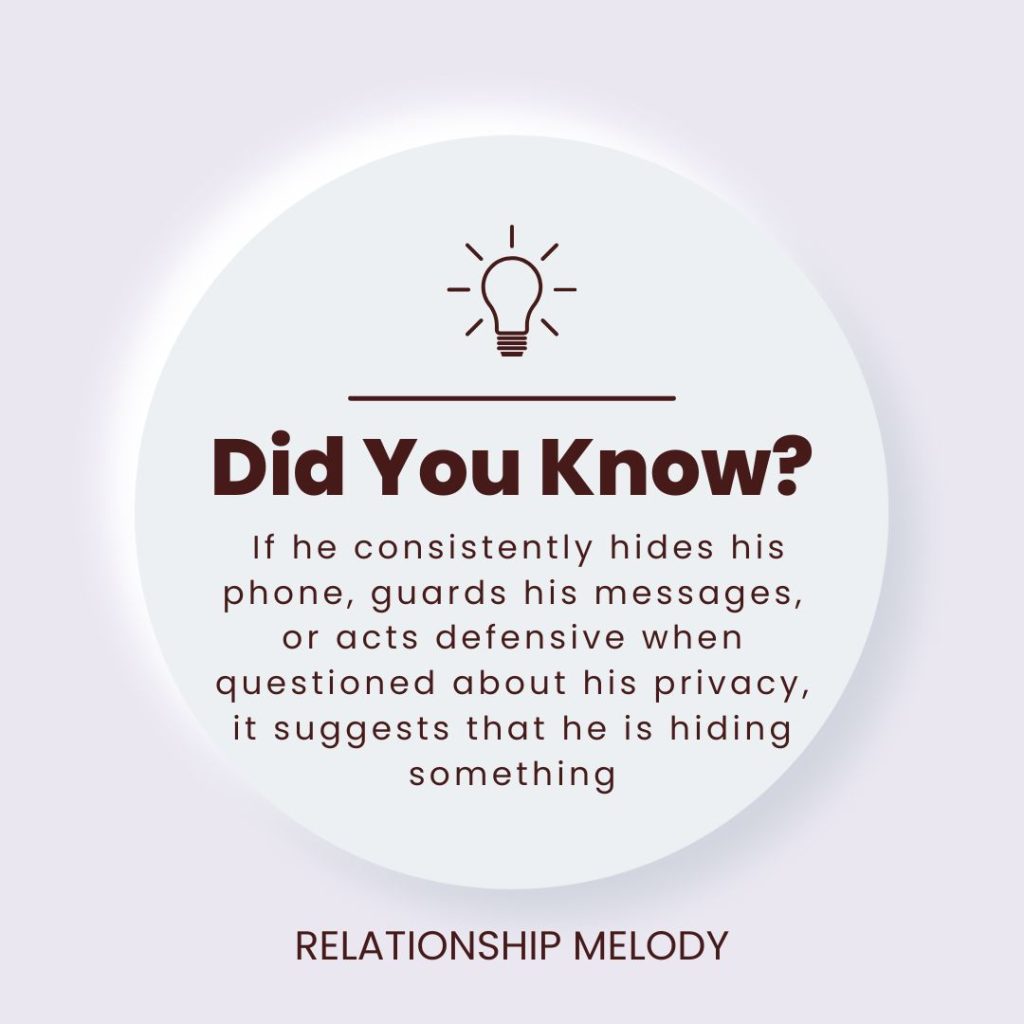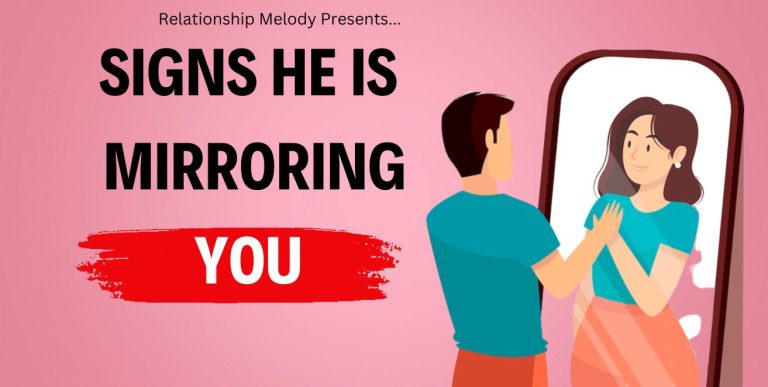25 Signs He Is Cheating On You Long Distance Relationship
Maintaining a long-distance relationship can be a challenge, especially when doubts and insecurities start to creep in.
Trust is the foundation of any successful relationship, and when that trust is compromised, it can lead to heartbreak and uncertainty.
If you suspect that your partner may be cheating on you, it’s essential to be aware of the signs. In this blog post, we will explore 25 signs that may indicate your partner is being unfaithful in a long-distance relationship.
25 Signs He Is Cheating On You Long Distance Relationship
These are 25 signs to know.
#1 Decreased Communication:
When your partner starts to become less responsive or avoids engaging in conversations, it can be a sign that his attention and time are being directed elsewhere.
It may indicate a lack of interest or investment in the relationship, leading to suspicions of infidelity.
Communication is vital in maintaining a long-distance relationship, so a sudden decrease in it should raise concerns and prompt a discussion to address the issue.
#2 Frequent Cancellations:
Consistently cancelling plans or making excuses to avoid video calls and meetings is a concerning behaviour in a long-distance relationship. It suggests a lack of commitment and prioritization of other activities or individuals.
When your partner consistently puts off spending quality time together, it can lead to doubts about his fidelity.
It is crucial to address this pattern and have an open conversation about the reasons behind the cancellations to understand whether there is a genuine conflict or a deeper issue at play.
#3 Lack of Interest in Your Life:
In a committed relationship, partners are interested in each other’s lives and actively engage in conversations about their day-to-day experiences.
If your partner shows little curiosity about your activities, dismisses your achievements, or fails to ask about your well-being, it may indicate a lack of emotional connection.
This disinterest could be a red flag for potential infidelity, as his attention and emotional investment may be directed towards someone else.
#4 Unexplained Absences:
Regularly experiencing unexplained absences from your partner without a valid reason can cause doubt and suspicion in a long-distance relationship.
If he frequently disappears without explaining or becomes vague when questioned about his whereabouts, it raises concerns about his faithfulness.
Open communication is crucial in addressing these absences and seeking clarity. It is important to express your concerns and expectations regarding transparency and honesty in the relationship.
#5 Sudden Change in Communication Patterns:
A noticeable alteration in your partner’s texting habits, such as delayed responses, sporadic messages, or a significant decrease in overall communication, can be a sign of potential infidelity.
While everyone has their ups and downs in communication, a sudden and consistent change should not be ignored.
It may indicate that your partner is investing his time and energy in conversations with someone else. This shift in communication patterns can create a sense of distance and raise suspicions about his fidelity.
#6 Inconsistencies in Stories:
Pay attention to inconsistencies in your partner’s explanations about his whereabouts or actions. If his stories don’t align or change frequently, it can be a sign that he is being dishonest.
These inconsistencies may arise from trying to cover up infidelity or hiding interactions with someone else.
Trust is built on honesty and consistency, so it’s crucial to address any discrepancies in your partner’s stories and seek clarity to ensure the integrity of your relationship.
#7 Increased Secrecy:
When your partner becomes overly protective of his phone, social media accounts, or personal belongings, it raises concerns about potential infidelity.
If he consistently hides his phone, guards his messages, or acts defensive when questioned about his privacy, it suggests that he is hiding something.

Secrecy and a lack of transparency can erode trust in a long-distance relationship, making it essential to have open conversations about boundaries, trust, and the need for honesty.
#8 Avoidance of Future Plans:
In a committed long-distance relationship, partners typically make efforts to discuss and plan for the future together. If your partner consistently avoids or dismisses conversations about plans, it can be an indication of wavering commitment or a diversion of attention elsewhere.
A lack of interest in building a shared future may suggest that he is not fully invested in the relationship, potentially opening the door to infidelity. It is crucial to address this avoidance and have an open dialogue to understand each other’s expectations and commitment levels.
#9 Decreased Intimacy:
A sudden decline in physical or emotional intimacy can be a sign that your partner is investing his affection elsewhere. Intimacy is an essential aspect of any romantic relationship, and a noticeable decrease in affection, compliments, or emotional closeness may raise suspicions of infidelity.
If your partner becomes distant or avoids intimate conversations, it is essential to address these changes and discuss your concerns openly and honestly to ensure the health and fidelity of your relationship.
#10 Unexplained Expenses:
Financial secrecy can be a red flag in a long-distance relationship. If you notice unusual or unaccounted-for expenses in your partner’s financial transactions, it is important to question the source of these expenditures.
Sudden increases in spending, unexplained luxury purchases, or secretive financial behavior may suggest that your partner is investing resources in someone other than you.
Money matters should be transparent and discussed openly in a relationship, and any unexplained expenses should be addressed to ensure trust and fidelity.
#11 Excessive Defensiveness:
When confronted or questioned about potential signs of infidelity, a partner who becomes overly defensive or accuses you of baseless suspicions may be attempting to divert attention away from his unfaithful behavior.
Excessive defensiveness can be a way to deflect guilt and avoid addressing the underlying issue. It is important to approach such conversations calmly and assertively, expressing your concerns while encouraging open and honest communication.
#12 Unfamiliar Names or Contacts:
Discovering new names or contacts in your partner’s phone or social media accounts can be a cause for concern. It may indicate that he is involved with someone else and is attempting to keep those interactions hidden.
If you come across unfamiliar names or notice an increase in secretive behavior regarding your contacts, it is important to have a conversation about trust and the need for transparency in the relationship.
#13 Secretive Social Media Activity:
Pay attention to any secretive or suspicious behavior on your partner’s social media platforms. Hiding posts, deleting messages, or creating alternate accounts can be signs that he is trying to conceal interactions or connections with someone outside the relationship.
Open and honest communication about social media usage and expectations can help address these concerns and ensure trust in a long-distance relationship.
#14 Lack of Jealousy:
While excessive jealousy can be detrimental to a relationship, a complete absence of jealousy may indicate that your partner is emotionally detached or involved with someone else.
A healthy level of jealousy can demonstrate that your partner values and cares about your relationship.
If he consistently shows no concern or reaction to potential threats or flirtations from others, it could be a sign of his disengagement or emotional investment elsewhere.
#15 Disinterest in Future Together:
When a partner shows disinterest or dismisses discussions about plans and goals as a couple, it can be a significant red flag.
A lack of enthusiasm or avoidance of conversations about shared aspirations may suggest that he does not envision a future with you, or that his focus has shifted to someone else.
Addressing this disinterest is crucial for clarifying expectations and determining the commitment level in your long-distance relationship.
#16 Changes in Appearance:
Pay attention to sudden and significant changes in your partner’s physical appearance, grooming habits, or clothing style.
If he shows a sudden interest in looking more attractive or appealing, it may be a sign that he is attempting to impress someone else.
While personal transformations can occur for various reasons, when combined with other suspicious behaviors, they may raise concerns about infidelity.
#17 Excessive Criticism:
Constant criticism or belittlement can be a way for your partner to justify his actions or create emotional distance. If your partner consistently criticizes your appearance, actions, or choices, it may be a sign of his guilt or a method of undermining the relationship.
Open communication about these criticisms and their impact on the relationship is important for addressing the underlying issues and maintaining trust.
#18 Unexplained Emotional Distance:
Emotional distance or withdrawal without a valid reason can be a sign that your partner is emotionally involved with someone else.
If he becomes less engaged, less affectionate, or less interested in your emotional well-being, it may indicate a diversion of his emotional investment.
It is crucial to communicate openly about your emotional needs and concerns, allowing space for vulnerability and understanding.
#19 Unavailability During Usual Times:
If your partner consistently becomes unavailable during specific hours or has unexplained absences during regular times of communication, it may raise suspicions of infidelity.
While occasional schedule changes or conflicts can occur, consistent unavailability without a valid explanation can indicate that he is prioritizing someone or something else over the relationship. Open communication is necessary to address concerns and establish trust.
#20 Avoidance of Video Calls:
Reluctance or frequent excuses to avoid video calls can be a sign that your partner is trying to hide something or avoid potential slip-ups. Video calls provide a more intimate and direct connection, making it difficult to hide infidelity.
If your partner consistently avoids or reschedules video calls, it is important to express your concerns and discuss the importance of visual communication in maintaining trust.
#21 Lack of Effort in Maintaining the Relationship:
In a long-distance relationship, both partners need to invest effort to keep the connection strong.
If you notice a significant decrease in your partner’s effort to maintain the relationship, such as infrequent calls, lack of initiative in planning visits, or general apathy towards nurturing the bond, it may be an indication that his attention and energy are being directed elsewhere.
It is important to have a conversation about the importance of mutual effort and commitment to ensure the health and fidelity of the relationship.
#22 Drastic Change in Attitude:
If your partner’s attitude towards you suddenly shifts, such as increased irritability, indifference, or being emotionally unavailable, it may be a sign of emotional detachment or involvement with someone else.
Abrupt changes in behavior can be unsettling and raise doubts about his fidelity. Honest and open communication is necessary to address these changes and explore the underlying reasons for the shift in attitude.
#23 Unexplained Delays in Responses:
Consistently experiencing delays in your partner’s responses to messages or calls without a valid explanation can be a cause for concern.
While occasional delays are understandable, if it becomes a consistent pattern, it may indicate that he is preoccupied with someone or something else.
Openly discussing communication expectations and expressing concerns about the delays can help establish clearer boundaries and promote transparency in the relationship.
#24 Absence of Future Orientation:
A partner who consistently avoids discussing or planning for the future together may not see a long-term commitment.
If your partner shows a lack of interest in envisioning a shared future or dismisses conversations about long-term plans, it may be an indication of his waning commitment to the relationship.
Addressing these concerns and discussing your respective expectations can provide clarity and help determine the future of the relationship.
#25 Gut Feeling:
Trust your instincts. Sometimes, our intuition picks up on subtle cues and signals that something may be amiss in the relationship.
If you have a persistent gut feeling or an inner sense of unease that your partner may be cheating, it is important to pay attention to it.
While it is essential to approach the situation with openness and avoid jumping to conclusions, honoring your intuition can help prompt a conversation where you can express your concerns and seek reassurance or clarity from your partner.
Learn more: 25 Signs He Is Cheating On You.
Conclusion:
Navigating a long-distance relationship can be challenging, but trust and open communication are crucial to its success.
If you notice multiple signs of infidelity in your partner, it’s important to have an open and honest conversation about your concerns.
Remember, trust is the foundation of any relationship, and rebuilding it requires both parties to be committed to transparency and understanding. Ultimately, you deserve a relationship built on trust, respect, and mutual devotion.
Liked Our Article?
Our Patreon link: https://www.patreon.com/RelationshipMelody

Welcome to Relationship Melody! Our website is dedicated to all things on relationships, dating, and love! We are passionate about helping you navigate the ups and downs of love, and our goal is to provide you with valuable insights and information that will make your journey toward a fulfilling relationship smoother and more enjoyable.







